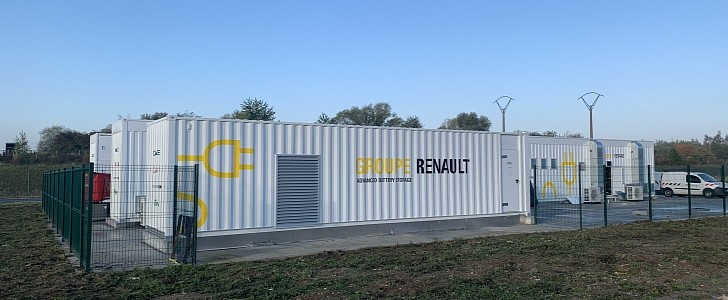It’s official – Renault announced 2 major partnerships that will advance its EV battery development strategy, with Envision AESC and Verkor. A third partner, ACC, could also join the ecosystem in the next years, strengthening Renault’s leading position in the battery manufacturing industry.
A gigafactory in Douai, with a 9 GWh capacity in 2024 and the objective of reaching 24 GWh by 2030, plus another gigafactory in 2026, with a 10 GWh capacity and aiming for 20 GWh by 2030 – these will be the results of Renault’s recently announced partnerships. And these factories will be at the heart of the Group’s France-based battery manufacturing ecosystem.
With the goal of making 1 million EVs in Europe, by 2030, and getting EV sales up to 90% of its total sales by the same date, Renault has set an ambitious strategy that is now at a turning point.
Envision AESC, the battery arm of the global green tech company Envision Group, will invest €2 billion to produce the latest technology batteries for EVs, including the R5, at the Douai facility. Additionally, Verkor will contribute to developing a high-performance battery for the higher segment of the Renault range and the Alpine models.
Through this partnership, Renault is becoming a shareholder of Verkor, which will first launch an innovation center and a pilot line for battery cell production, in 2022, before inaugurating the gigafactory.
Both of the Group’s new partners will play an essential role not only in developing high-performance and cost-effective batteries, but also in making battery manufacturing more sustainable, including battery reuse and closed loop recycling. One of the goals is to cut CO2 emissions from the battery manufacturing process by 75%.
The agreements with Envision AESC, Verkor (and potentially ACC) complement Renault’s major collaboration with LG Chem, the battery supplier for the company’s current electric range and upcoming MeganE.
With the goal of making 1 million EVs in Europe, by 2030, and getting EV sales up to 90% of its total sales by the same date, Renault has set an ambitious strategy that is now at a turning point.
Envision AESC, the battery arm of the global green tech company Envision Group, will invest €2 billion to produce the latest technology batteries for EVs, including the R5, at the Douai facility. Additionally, Verkor will contribute to developing a high-performance battery for the higher segment of the Renault range and the Alpine models.
Through this partnership, Renault is becoming a shareholder of Verkor, which will first launch an innovation center and a pilot line for battery cell production, in 2022, before inaugurating the gigafactory.
Both of the Group’s new partners will play an essential role not only in developing high-performance and cost-effective batteries, but also in making battery manufacturing more sustainable, including battery reuse and closed loop recycling. One of the goals is to cut CO2 emissions from the battery manufacturing process by 75%.
The agreements with Envision AESC, Verkor (and potentially ACC) complement Renault’s major collaboration with LG Chem, the battery supplier for the company’s current electric range and upcoming MeganE.







